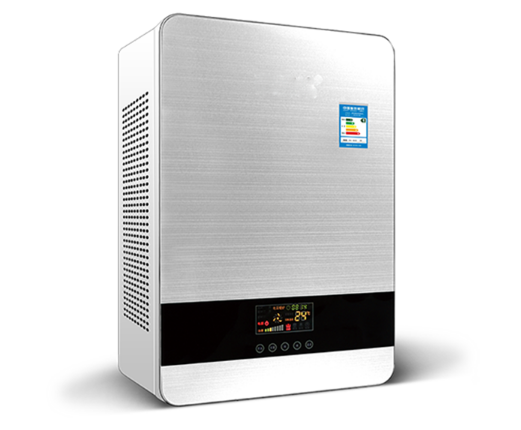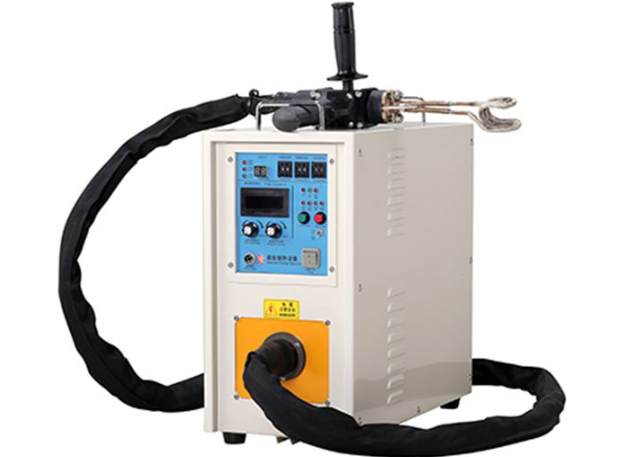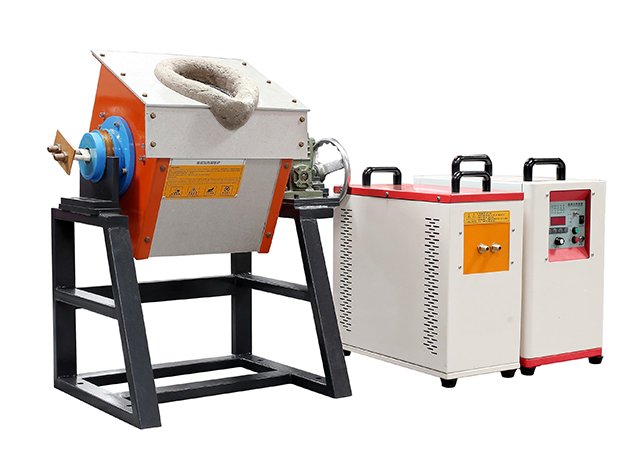In heating technology, precision, efficiency, and versatility are crucial. Two common terms are "induction heater" and "water heater," each serving distinct functions with unique mechanisms. This article explores the concept of an induction heater and highlights how it differs from a conventional water heater.
What Is an Induction Heater?
An induction heater operates on the principle of electromagnetic induction. It generates a high-frequency alternating current (AC) within a coil, creating a rapidly changing magnetic field around it. This field induces eddy currents in nearby conductive materials, which generate heat due to electrical resistance. This process rapidly increases the temperature of the object being heated. Induction heaters are used in various industries, including metal forging, melting, cooking, and electronics manufacturing, due to their efficiency, precision, and uniform heating capabilities.

Difference Between Water Heater and Induction Heater
Now, let's explore the fundamental differences between a water heater and an induction heater
Heating Mechanism
Water Heater: A water heater is designed specifically for heating water. It uses heating elements, such as electric coils or gas burners, to directly warm the water stored in a tank. The heat from these elements is transferred to the water, increasing its temperature for various domestic or industrial applications.
Induction Heater: In contrast, an induction heater does not rely on a heating element to heat a fluid like water. Instead, like high frequency induction heater, it uses electromagnetic induction to heat solid objects, typically made of conductive materials like metals. It generates a magnetic field that induces eddy currents in the object, leading to rapid and precise heating.
Applications
Water Heater: Water heaters are mainly used to supply hot water for domestic and commercial purposes. Common applications include bathing, dishwashing, laundry, and other tasks requiring a steady supply of hot water.
Induction Heater: Induction heating equipment serves a wide range of industrial applications. It is utilized for metal forging, melting, brazing, cooking, plastic welding, and other processes that need precise and efficient heating of solid materials.
Energy Efficiency
Water Heater: Water heaters, though essential for everyday use, can be less energy-efficient, especially with continuous use. Standby heat loss occurs as the water in the tank remains hot even when not in use, leading to energy wastage.
Induction Heater: Induction heaters are highly energy-efficient. They heat objects directly, minimizing heat loss. Their rapid heating capabilities also reduce energy consumption compared to traditional heating methods.
Temperature Control
Water Heater: Water heaters usually come with thermostats to regulate the water temperature within a specific range. However, achieving precise temperature control can be difficult, often resulting in fluctuations in hot water delivery.
Induction Heater: Induction heaters, including ultrasonic heating machines, provide precise temperature control, making them suitable for applications requiring exact heating temperatures. The frequency and intensity of the AC current can be adjusted to ensure accurate and uniform heating.
Aspect | Water Heater | Induction Heater |
Heating Mechanism | Directly heats water using electric coils or gas burners | Indirectly heats objects via electromagnetic induction |
Primary Applications | Provides hot water for domestic and commercial use | Used for various industrial processes requiring precise and efficient heating |
Energy Efficiency | May have standby heat loss due to continuous heating of water | Highly energy-efficient as it heats objects directly with minimal heat loss |
Temperature Control | Typically features thermostats for water temperature control | Offers precise temperature control for accurate and uniform heating |
Heating Material | Heats water (liquid) | Heats solid objects (typically conductive materials) |
Common Use Cases | Bathing, dishwashing, laundry, space heating | Metal forging, melting, brazing, cooking, plastic welding, electronics manufacturing, and more |
Conclusion
In summary, while both water heaters and induction heaters are crucial for different applications, they differ notably in their mechanisms, uses, energy efficiency, and temperature control capabilities. Recognizing these differences helps us appreciate the unique advantages each technology offers, addressing diverse heating needs in today’s world.








